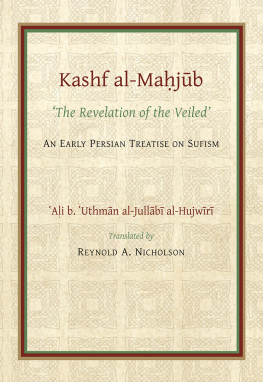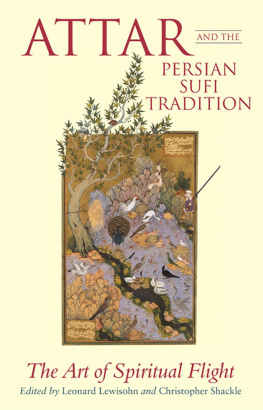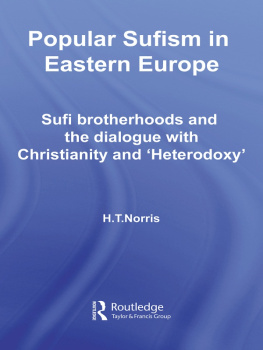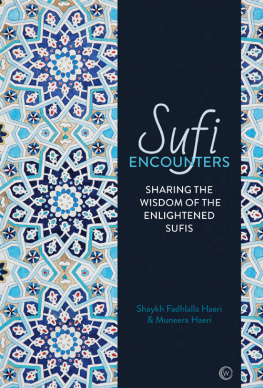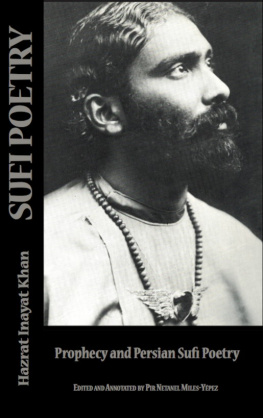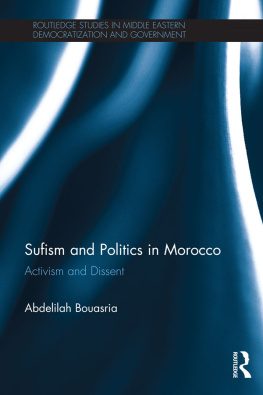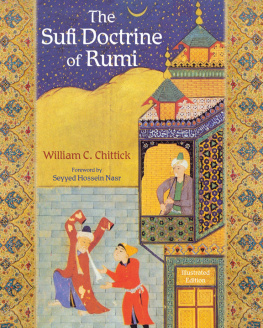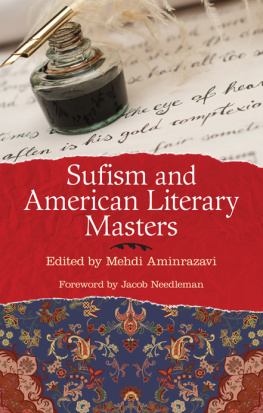Kashf al-Mahjb
The Revelation of the Veiled
Kashf al-Mahjb
The Revelation of the Veiled
AN EARLY PERSIAN TREATISE ON SUFISM
Ali b. Uthmn al-Jullb al-Hujwr
Translated by
REYNOLD A. NICHOLSON
Gibb Memorial Trust
Published by
The E. J. W. Gibb Memorial Trust
Trustees: G. van Gelder, R. Gleave, C. Hillenbrand, H. Kennedy,
C. P. Melville, J. E. Montgomery, A. Williams, C. Woodhead
Secretary to the Trustees: P. R. Bligh
The E. J. W. Gibb Memorial Trust 2000
First published 1911
New edition 1936
Reprinted 1959, 1967, 1970, 1976
Reprinted with corrections 2000, 2014
ISBN 978-0-906094-37-2
A CIP record for this book is available from the British Library
Further details of the E. J. Gibb Memorial Trust and its publications
are available at the Trusts website
www.gibbtrust.org
CONTENTS
THIS translation of the most ancient and celebrated Persian treatise on fiism will, I hope, be found useful not only by the small number of students familiar with the subject at first hand, but also by many readers who, without being Orientalists themselves, are interested in the general history of mysticism and may wish to compare or contrast the diverse yet similar manifestations of the mystical spirit in Christianity, Buddhism, and Islam. The origin of fiism and its relation to these great religions cannot properly be considered here, and I dismiss such questions the more readily because I intend to deal with them on another occasion. It is now my duty to give some account of the author of the Kashf al-Mahjb, and to indicate the character of his work.
Abu l-asan Al b. Uthmn b. Al al-Ghaznaw al-Jullb al-Hujwr a fifteenth century treatise on the Muhammadan saints by Yaqb b. Uthmn al-Ghaznaw, contains an anecdote, for which it would be hazardous to claim any historical value, to the effect that al-Hujwir once argued in Mamds presence with an Indian philosopher and utterly discomfited him by an exhibition of miraculous powers. Be that as it may, he was venerated as a saint long after his death, and his tomb at Lahore was being visited by pilgrims when Bakhtwar Khn wrote the Riy al-Awliy in the latter half of the seventeenth century.
In the introduction to the Kashf al-Mahjb al-Hujwr complains that two of his former works had been given to the public by persons who erased his name from the title-page, and pretended that they themselves were the authors. In order to guard against the repetition of this fraud, he has inserted his own name in many passages of the present work. His writings, to which he has occasion to refer in the Kashf al-Mahjb, are
1. A dwn (p. 2).
2. Minhj al-dn, on the method of fiism (p. 2). It comprised a detailed account of the Ahl-i Suffa (p. 80) and a full biography of usayn b. Manr al-allj (p. 153).
3. Asrr al-khiraq wa l-mant, on the patched frocks of the fs (p. 56).
4. Kitb-i fan baq, composed in the vanity and rashness of youth (p. 60).
5. A work, of which the title is not mentioned, in explanation of the sayings of usayn b. Manr al-allj (p. 153).
6. Kitb al-bayn li-ahl al-iyn, on union with God (p. 259).
7. Bahr al-qulb (p. 259).
8. Al-Riyat li-uqq Allah, on the Divine unity (p. 280).
9. A work, of which the title is not mentioned, on faith (p. 286).
None of these books has been preserved.
The Kashf al-Mahjb, which belongs to the later years of the authors life, and, partly at any rate, to the period of his residence in Lahore, was written in reply to certain questions addressed to him by a fellow-townsman, Ab Sad al-Hujwr. Its object is to set forth a complete system of fiism, not to put together a great number of sayings by different Shaykhs, but to discuss and expound the doctrines and practices of the fs. The authors attitude throughout is that of a teacher instructing a pupil. Even the biographical section of the work (pp. 70175) is largely expository. Before stating his own view the author generally examines the current opinions on the same topic and refutes them if necessary. The discussioii of mystical problems and controversies is enlivened by many illustrations drawn from his personal experience. In this respect the Kashf al-Mahjb is more interesting than the Risla of Qushayr, which is so valuable as a collection of sayings, anecdotes, and definitions, but which follows a somewhat formal and academic method on the orthodox lines. No one can read the present work without detecting, behind the scholastic terminology, a truly Persian flavour of philosophical speculation.
Although he was a Sunn and a anafite, al-Hujwr, like many fs before and after him, managed to reconcile his These three mystics developed the distinctively Persian theosophy which is revealed in full-blown splendour by Fard al-dn Ar and Jall al-dn Rm.
The most remarkable chapter in the Kashf al-Mahjb is the fourteenth, Concerning the Doctrines held by the different sects of fs, in which the author enumerates twelve mystical That is perfectly true, but after allowing for all divergences there remains a fairly definite body of doctrine which is held in common by fs of many different shades and is the result of gradual agglomeration from many different minds.
It is probable that oral tradition was the main source from which al-Hujwr derived the materials for his work. Of extant treatises on fiism he mentions by name only the Kitb al-Luma by Ab Nar al-Sarrj, who died in 377 or 378 A.H. This book is written in Arabic and is the oldest specimen of its class. Through the kindness of Mr. A. G. Ellis, who has recently acquired the sole copy that is at present known to Orientalists, I have been able to verify the reading of a passage quoted by al-Hujwr (p. 341), and to assure myself that he was well acquainted with his predecessors work. The arrangement of the Kashf al-Mahjb is partially based on that of the Kitb al-Luma, the two books resemble each other in their general plan, and some details of the former are evidently borrowed from the latter. Al-Hujwiri refers in his notice of Maruf al-Karkh (p. 114) to the biographies of Sufis compiled by Ab Abd al-Ramn al-Sulam and Abu l-Qsim al-Qushayr. Although he does not give the titles, he is presumably referring to Sulams Tabaqt al-Sfiyya and Qushayrs Risla. The Kashf al-Mahjb contains a Persian rendering of some passages in the Risla of Qushayr, with whom al-Hujwr seems to have been personally acquainted. A citation from Abdallh Ansr occurs on p. 26.
Manuscripts of the Kashf al-Mahjb are preserved in several European libraries.its mistakes are easy to emend, and the text agrees closely with two MSS. in the Library of the India Office (Nos. 1773 and 1774 in Eths Catalogue), with which I have compared it. I have also consulted a good MS. in the British Museum (Rieus Catalogue, i, 342). The following abbreviations are used: L. to denote the Lahore edition, I. to denote the India Office MS. 1773 (early seventeenth century), J. to denote the India Office MS. 1774 (late seventeenth century), and B. to denote the British Museum MS. Or. 219 (early seventeenth century). In my translation I have, of course, corrected the Lahore text where necessary. While the doubtful passages are few in number, there are, I confess, many places in which a considerable effort is required in order to grasp the authors meaning and follow his argument. The logic of a Persian Sf must sometimes appear to European readers curiously illogical. Other obstacles might have been removed by means of annotation, but this expedient, if adopted consistently, would have swollen the volume to a formidable size.

